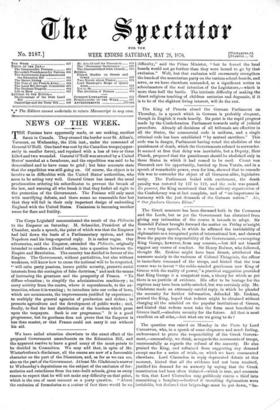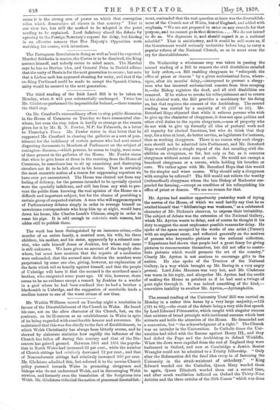The question was raised on Monday in the Peers by
Lord Carnarvon, who, in a speech of some eloquence and much feeling, endeavoured to prove the responsibility of the Greek Govern- ment,—successfully, we think, as regards the movements of troops, unsuccessfully as regards the refusal of the amnesty. He also praised the King, and refrained from suggesting any demand except one for a series of trials, on which we have commented elsewhere. Lord Clarendon in reply deprecated debate at this moment, hinted that all the evidence had not been received, justified his demand for an amnesty by saying that the Greek constitution had been often violated—which is true, and amounts to this, that Lord Clarendon may guiltlessly coerce a thief into committing a burglary—doubted if travelling diplomatists were inviolable, but declared that brigandage must be put down, "be-
cause it is the strong arm of power on which that corruption relies which demoralizes all classes in that country." That is our view too, but still the method to be adapted is the point needing to be explained. Lord Salisbury closed the debate by agreeing to the Foreign Secretary's request for delay, but hinting in an effective manner that Der Majesty's Opposition were watching his course, with intentions.































